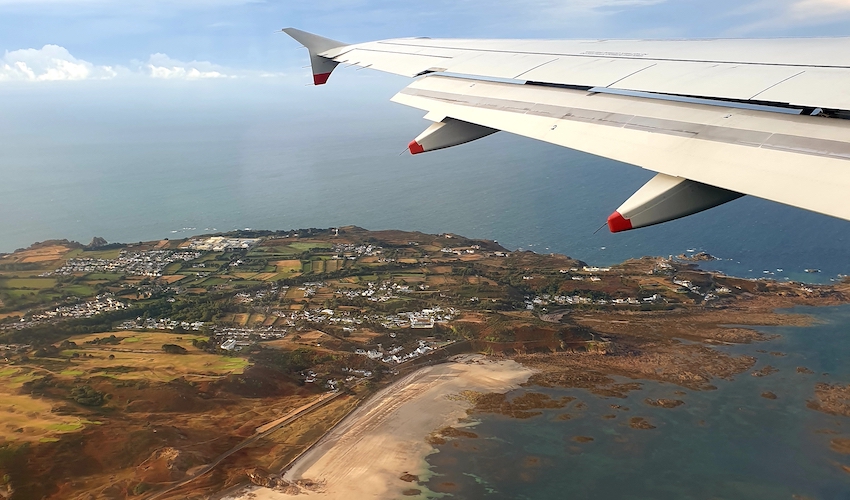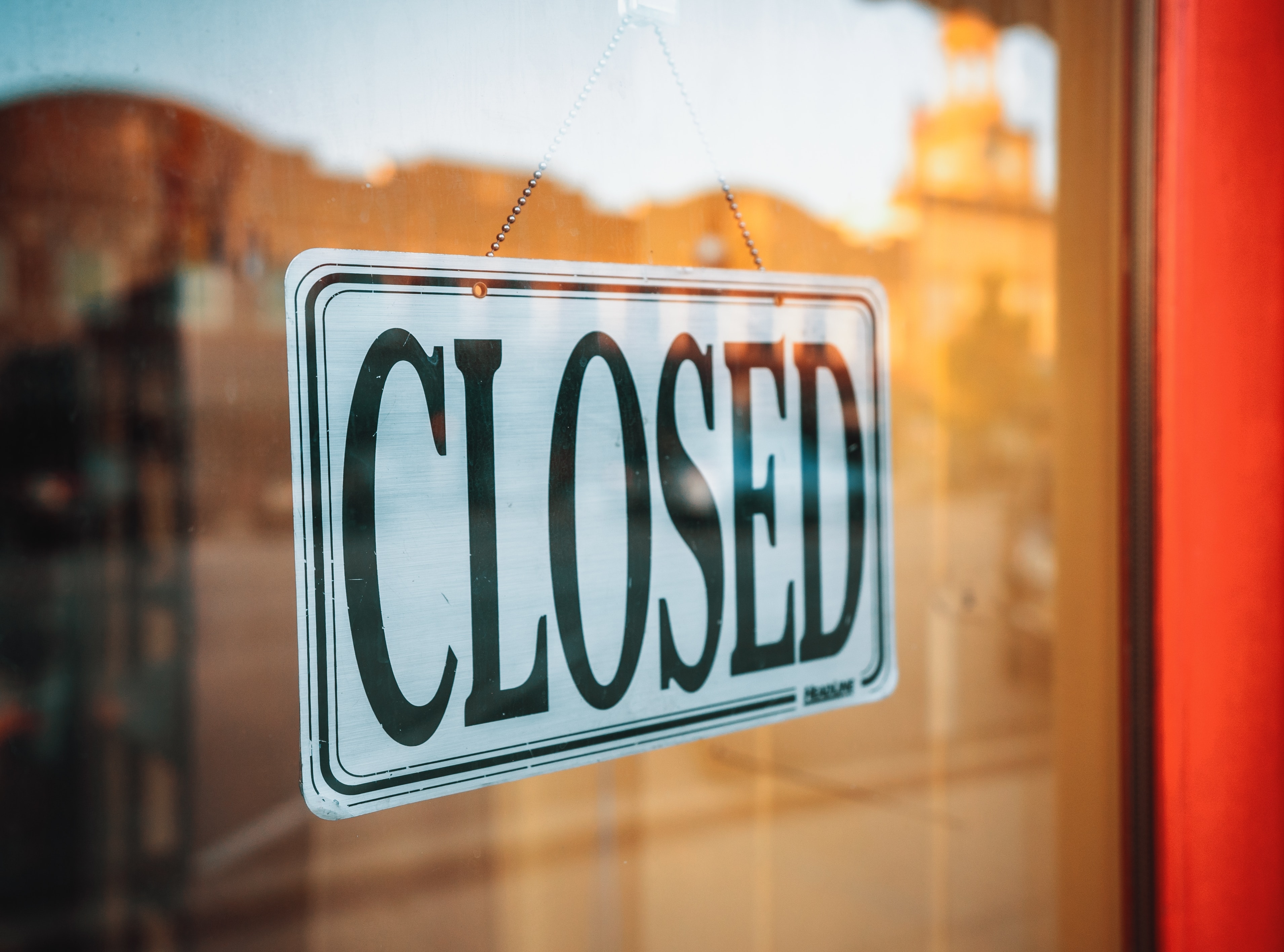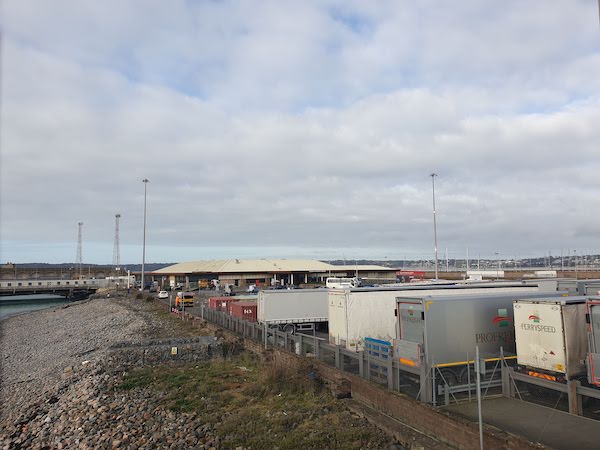


‘No deal’ may be the final nail in the coffin for Jersey’s embattled hospitality industry, the sector’s “petrified” Chief has said, as he warned of mass hotel and restaurant closures arising from the loss of EU workers.
Jersey Hospitality Association (JHA) Head Simon Soar says that the industry is already squeezed amid staffing difficulties, and that a chaotic Brexit will only worsen these, hitting tourists, locals and the whole island economy in the pocket in the process.
The alert comes following the Prime Minister's decision to suspend parliament yesterday in a move dubbed an affront to democracy, crystallising fears that Brexit will happen without an approved Withdrawal Agreement.
Under the as yet unagreed deal, there will be a two-year transition period starting from 31 October to allow for businesses to adapt to the implications of Brexit, including the end of free movement of EU citizens.
But, without a deal, the crucial flow of seasonal European workers helping keep the island’s tourism sector buoyant would be turned off “right away”.

Pictured: Mr Soar says it would be devastating if the crucial flow of seasonal European workers helping keep the island’s tourism sector buoyant were to be turned off “right away” in the absence of a deal.
“It would be devastating for our industry,” Mr Soar told Express. “We’re talking about losing a large portion of our workforce. Staffing has been a very pressing issue for our industry for a while now. I think this will take it from being a very difficult position to being impossible.”
To help secure their working futures, many of the employees currently serving in the island have applied for settled or pre-settled status under the Jersey EU Settlement Scheme.
But, while Mr Soar said that it was helpful to have their status confirmed, he said that this doesn’t alleviate the key problem.
“The issue isn’t just getting the current staff to apply – if they’ve applied, then we’ve got them saved. Where are we meant to get new labour resources from? It’s not like we can magic up a new source of labour or tap into a European country.

Pictured: Applying for worker visas is a route open to hotels and other hospitality establishments, but the process is costly.
“We’re dealing with a position where visas will have to be applied for every worker coming in... How do you encourage people to come over, when they’ve had a free border to move over? Suddenly they have to apply for visas – that visa could have them tied to a venue, which they may not want to do. There’s a lot of potential that this will scare a lot of people… Although we have some that will return, within a few years that will have dried off significantly, and there will be no more staff to come into the island.”
Applying for worker visas is a route open to hotels and other hospitality establishments, but the process is costly.
“We have this non-EU work permit scheme – we’re currently bringing over predominantly Kenyans – but the cost of the paperwork is not a small amount. The time it takes to process, the amount we’re able to get over, and the cost of it – if you add it all up, with a flight as well, it’s probably an extra £1,500 for every member of staff.”
And, as Mr Soar explains, that cost has to be “passed on” to consumers.
This, in turn, may be detrimental to attracting tourists – something damaging for tourism, as the island deals in an “export market… competing globally to get people to come.”

Pictured: Establishments who can't burden the costs will be forced to closed warned Mr Soar.
For establishments that can’t bear the burden, the answer is simple: closure.
It comes at an inconvenient time – when the industry is trying to grow, with Visit Jersey pushing for one million visitors per year.
But beyond damage to the tourism and the economy - hotels, restaurants and bars are worth more than £180million per year - hospitality faltering as a result of Brexit could pose an issue for islanders' lifestyles too.
According to Mr Soar, data from Ports of Jersey suggests that, without tourism, Jersey residents would only have access to as few as four flights to London a day.
“If we lose tourism, you’ll have none of the connectivity, you’ll have none of the options for dining out. It will become like winter all year round. It would threaten our attractions in a big way.”
What’s most frustrating, and worrying, he candidly admits, is that the industry currently has no way of responding to this emerging crisis: “The whole situation petrifies me. Absolutely petrifies me. I don’t know what we’re meant to do in a situation like this, I don’t know how our industry can survive.”

Pictured: Tourism faltering as a result of Brexit could pose an issue for islanders too.
The vision may sound somewhat apocalyptic for the industry, but Mr Soar is firm that he is “not scaremongering” – “that’s the last thing I want to do.”
“If we’re realistic about the situation, we cannot continue with this few staff available.”
But hospitality struggles aren’t the only set to be faced by the island in the event of a ‘no deal’ Brexit.
Leaked earlier this month, the UK government’s ‘Operation Yellowhammer’ document – outlining the worst case scenario if the UK leaves the EU without a deal – predicted significant supply chain difficulties for the Crown Dependencies.
In a FAQ recently published to its website, Jersey’s government says that, while food supplies “will not run out”, there will be a likely reduction in the amount of available goods, particularly fresh food.
Price inflation is expected as a result, which the government says it is investigating how to deal with in the case of “vulnerable groups” that may struggle with the cost increase.

Pictured: 500,000 tonnes of freight come into Jersey from the UK.
With 500,000 tonnes of freight coming into Jersey from the UK, the government is also conducting “scoping work” alongside “key members of the industry” on the potential of using southerly freight routes in case the Brexit disruption in the UK becomes “unmanageable”.
Ahead of 31 October, islanders have been urged to add extra items to their shop as a precautionary measure. But while they’ve been urged to stock up on food, the same warning has not been extended to medicine, with officials stating: “The [UK Department of Health] have confirmed that Jersey is included in all of their contingency plans. The island will have the resilience to withstand any potential disruption with the UK supply chain. Islanders do not need to stockpile medicines or other medical equipment.”
In a statement, the Minister for External Relations, Senator Ian Gorst, confirmed that the “scope and resilience of our preparations remain under constant review by Jersey Ministers, and are updated as new information emerges”.

Pictured: The Minister for External Relations, Senator Ian Gorst.
He reassured that he remains “in contact with with UK Ministers in the Department for Exiting the European Union (DExEU) and Ministry of Justice, to ensure our interests are understood and represented.”
Senator Gorst added: “As before, we will be working directly with the Hampshire Local Resilience Forum and taking part in operational discussions around the resilience of the port of Portsmouth to ensure the ongoing continuity of our supply chains. We are confident that planning is robust.
“We are also working with Parish authorities and organisations such as Citizen’s Advice, charities, religious groups and community leaders, to ensure that we are aware of the needs and concerns of vulnerable people living in Jersey who may be adversely affected by a No Deal Brexit. We will continue to communicate with the public about our preparations for Brexit, and any proactive steps they can take to ensure they are best prepared.”
Comments
Comments on this story express the views of the commentator only, not Bailiwick Publishing. We are unable to guarantee the accuracy of any of those comments.